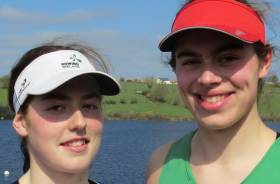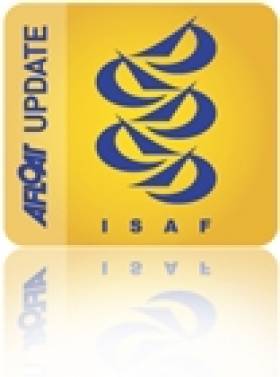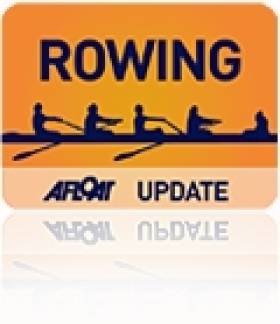Displaying items by tag: Tokyo
Irish Sailing Decline to Publish 'Full Report' on Tokyo Performance
Irish Sailing has declined to expand on the findings from its review of its Tokyo Olympic Team performance by publishing the 'full report' instead of an executive summary released this week.
A 'summary of findings' was published on Tuesday that concluded the Tokyo performance was "a disappointing Olympic Games that did not deliver on the high expectations post-Rio".
"Fewer boats qualified than the expected targets, and the performance of the boats which did qualify was disappointing", the summary stated.
The review, commissioned by the ISA, was prepared by sports coaching guru Gary Keegan of consultants Uppercut and a summary was published on the association website on Tuesday evening.
Introducing the report, Irish Sailing President David O'Brien said, "I am very pleased to share the independent external review of the Tokyo Olympics with you, Irish Sailing members and the wider sailing community".
The report author notes on page 3 of the summary: "A comprehensive report was issued to the Review Steering Panel which outlined the detailed findings, supporting evidence and recommendations based on the data and information shared during the review and also shares some perspectives and comparatives based on our experience of HP environments".
In response to a request for details of the 'comprehensive report', O'Brien told Afloat yesterday that "there is only one report “Summary of Headline Findings” published as a result of the review, which is as it indicates an Executive Summary of the full report, presented to and accepted by the Board. It is not intended to publish the full report".
The review follows criticism from a number of key sailing observers including Olympians and former coaches as well as plain-speaking former ISA President Roger Bannon, who called for some 'dispassionate reflection on Ireland's sailing performance' post-Tokyo.
Specifically, there are ongoing misgivings over the manner in which the Tokyo Olympic selection process was cut short by Irish Sailing in the women's Radial class, a point not mentioned in the published summary except to say 'consideration could be given to building in a “force majeure” provision to the Selection Policy' and 'communication with athletes who do not qualify needs to be enhanced'.
Sport Ireland has also commissioned its own independent Tokyo review.
In the five years from Rio, Irish Sailing received €3.87m in High-Performance state funding making it one of the top three funded Olympic sports.
A copy of the summary findings document is available to download here
#Rowing: Ireland’s Molly Curry and Rhiannon O’Donoghue finished second in their heat of the junior double sculls at the World Junior Championships in Tokyo this morning.
There was just one direct qualification spot for the A/B Semi-Finals, and the Netherlands were outstanding winners of this race. Lisa Bruijnincx and Jacobien van Westreenen made strong claims for being the best crew in this class with a big win.
Curry and O’Donoghue fought an exciting battle with Italy in the second half and won this by a length and a third. Greece, China and Belgium were the other heat winners.
Because of a worry about adverse weather, racing was run at five minute intervals, which brought forward the time of this heat.
World Rowing Junior Championships, Tokyo, Day One (Irish interest)
Women
Junior Double Sculls – Heat Four (Winner to A/B Semi-Final; rest to Repechages): 1 Netherlands 7:08.18; 2 Ireland (R O’Donoghue, M Curry) 7:16.55, 3 Italy 7:19.59.
Disabled Sailing Campaign for Tokyo Mounted By ISAF
#disabledsailing – The International Sailing Federation (ISAF) is to campaign for Disabled Sailing's inclusion in the Tokyo 2020 Paralympic Games and has appointed VERO Communications to advise and support its campaign. The decision to press the International Paralympic Committee (IPC) to add Disabled Sailing to the Tokyo 2020 Paralympic Games comes on the back of ISAF formally taking over the management of Disabled Sailing in November 2014, and the integration of the International Association for Disabled Sailing (IFDS) into ISAF.
Carlo Croce, ISAF President said, "Following the merger of IFDS into ISAF at the end of last year, Disabled Sailing is now under new professional management. This is a new era for Disabled Sailing with ISAF now able to fully utilise its technical, financial, promotional and strategic resources to bring significant benefits to Disabled Sailing. For example, we are now working hard to put in place a much enhanced, professional and aligned four year competition programme for Disabled Sailing, as well as generate greater media, broadcast and promotional opportunities for the sport following integration into ISAF's wider communications planning and activities.
"These are all new developments since the merger of IFDS into ISAF and it is important that we now effectively communicate this new era for Disabled Sailing to the IPC. I'm delighted that we have the proven expertise of VERO Communications to support us in this cause. Our focus now is to build the case for Disabled Sailing's inclusion in Tokyo 2020, much of which will be centred around new evidence, as well as stressing some of the unique attributes of Disabled Sailing, including the fact that it is the only sport where athletes with the highest level of disability can compete equally against athletes with other disabilities. I very much hope, upon receipt of this new evidence, that the IPC will look favourably on our case."
Mike Lee OBE, Chairman of VERO added, "VERO is delighted to support ISAF in their campaign to see Disabled Sailing included in the Tokyo 2020 Paralympic Games. The sport has a strong story to tell, especially since it was merged into ISAF at the end of 2014, and we look forward to working with the sailing community to ensure that this new era for Disabled Sailing is effectively communicated."
Rowing Course Earmarked As Tokyo Gets 2020 Olympics Nod
#Olympics - With Tokyo announced as the host city for the 2020 Olympic Games, World Rowing takes a look at what may be the course that the world's top rowers will race seven years from now.
The Sea Forest Waterway is a new regatta rowing course planned for Tokyo Bay, close to Haneda Airport and the proposed location of the Olympic Village.
The new course will comprise an existing shipping canal in an area of reclaimed land that's earmarked for new development, and would become a permanent fixture on Tokyo's expansive waterfront.
World Rowing has more on the proposals HERE.
































































